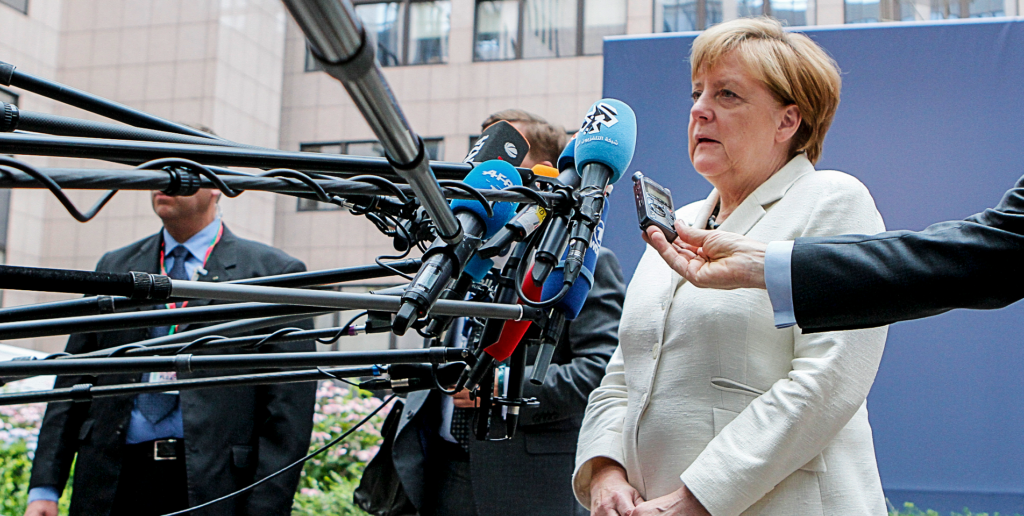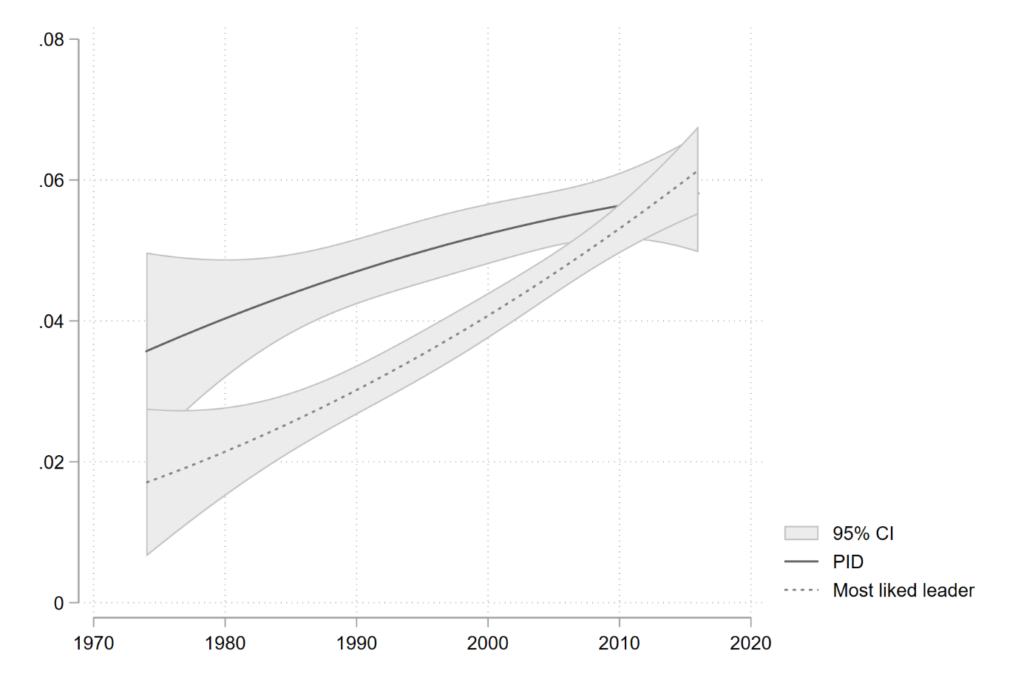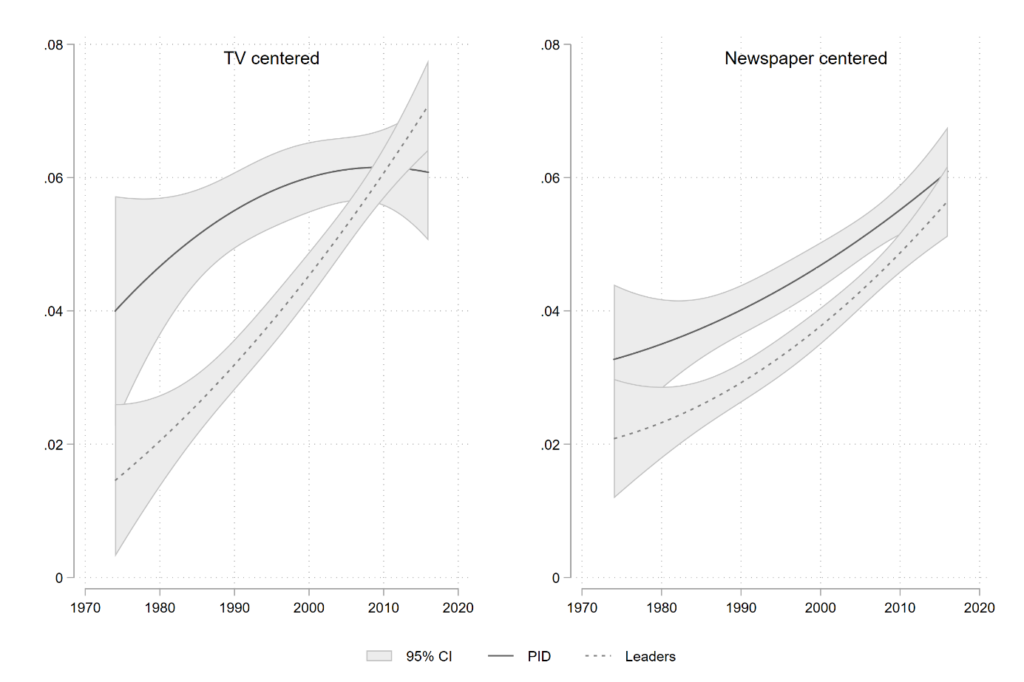Leader evaluations and electoral participation: the personalisation of voter turnout?
We know that voters identify less with political parties than they used to, and that politics has become more personalised. What effect has this had on turnout? Frederico Ferreira da Silva, Diego Garzia and Andrea de Angelis test the effect of voters’ identification with political leaders on turnout in 13 West European countries and find that the personal identification with a leader increases turnout, and that this pattern has increased over time and also depends on voters’ patterns of media consumption.

German Chancellor Angela Merkel talks to the press. Picture: European Council / (CC BY-NC-SA 2.0) licence
Since the 1980s, West European democracies have been undergoing a personalisation of politics – a process by which individual politicians become more relevant at the expense of the parties as political groups. Personalisation operates in multiple arenas: institutions (i.e., reforms at the electoral system level, allowing citizens the possibility of selecting the candidates they prefer to represent them), media (i.e., the increasingly influential role of individual politicians in political communication) and voters’ behaviour (i.e., the growing importance of party leader assessments in voters’ decision-making process).
This process is thought to be the result of several socio-political changes that occurred during the latter half of the previous century. In part, partisan dealignment contributed to releasing voters from parties and collective identifications. This made short-term factors, such as party leader appraisals, more prominent in shaping voting decisions. At the same time, a transformation in the structure of mass communication in Western societies made television voters’ primary source of political information. Television provides audiovisual communication and image-based content that very much favours a personalised type of communication centred around leaders – the visible faces of political parties. Media floods voters with coverage of party leaders, focusing not only on performance-related aspects, but often on personal life events, potentially influencing voting behaviour.
A significant number of studies have recently demonstrated that voters are increasingly making their voting decisions based on their evaluations of party leaders. Whenever voters like the leader of a given political party, they are significantly more prone to cast a vote for that party. For example, the electoral effect of leaders has been estimated to be comparable to that of partisanship and ideology, and much larger than widely credited explanations such as issues and economic voting.
Judging by the demonstration that voters’ evaluations of leaders do affect party choice, leaders do seem to be perceived as important actors in the minds of voters. But do they also matter when it comes to deciding whether or not to turn out?
Historically, perhaps the most decisive factor in driving citizens to the polls resided in the long-term affective bonds between voters and political parties. Having a party one identifies with is usually the single most important factor for electoral mobilisation. However, because of the dealignment process, partisans are now a minority in most European countries. It follows that, for the majority of voters, other factors must be influencing their turnout decisions. If they are not motivated by longstanding partisan loyalties, what is driving them to the ballot box instead? As with vote choice, here too, the answer might lie with party leaders. Voters have arguably become more open to considering other factors in their vote decision-making process, and party leaders are among the most important. So, just as personalisation – and all the factors that contribute to it – is leading to a growing importance of leader evaluations for vote choice, these same forces may be creating a favourable context for growing voter mobilisation.
In a study recently published in Party Politics, we try to address this hypothesis. More specifically, we investigate whether a context of party mobilisation through diffuse partisanship has been – at least, partially – replaced by the mobilising potential of political leaders. In doing so, we compare the relative importance of party identification and voters’ evaluations of party leaders between 1974 and 2016 across 13 West European democracies, to see if leaders became more relevant factors in explaining voter turnout. Considering a total of 52 elections, not only do we demonstrate that leader evaluations have a meaningful effect on the probability of turning out, we also show that such effect has significantly increased across time (Figure 1). Today, leader evaluations are just as important as partisanship in accounting for voter turnout.
Figure 1: Partisanship and leader effects on turnout, 1974–2016

Furthermore, we consider how the switch to a television-dominated media for political information may have contributed to these developments by exposing voters to a more personalised coverage of politics. We do so by taking into account individuals’ habits of consumption of political information on different media. Importantly, we consider voters’ overall media diet – that is, the extent to which they are more exposed to political information on television vis-à-vis newspapers. We distinguish between television-centric individuals (those who consume more political information on television than on newspapers) and newspaper-centric individuals (those who consume more political information on newspapers than on television). Our results clearly demonstrate that the effect of leader evaluations on the probability to turnout is stronger among television-centric voters compared to newspaper-centric individuals, to whom partisanship remains the most important factor. Thus, changes to the media system, and television in particular, appear to have played a crucial role in the development of this process.
Figure 2: Partisanship and leader effects on turnout for newspaper-centric and television-centric individuals, 1974–2016

The findings of this study shed some positive light on the potential of leaders to act as mobilising agents, at a time when Western democracies have been experiencing a growing distancing between voters and political parties, increasing political disengagement and a large-scale retreat from politics. The decline of partisan attachments means that partisanship is no longer able to mobilise citizens to the same degree as before. Leaders took over much of that mobilisation function, but admittedly, their potential also comes with some limits – a continuing decline in voter turnout rates suggests that, comparing these two factors alone, leader mobilisation may not be as effective as party mobilisation once was. Still, one may argue that such decline would be even greater were it not for the voters brought to polls by leaders’ appeal.
The normative implications of leader mobilisation are less clear. High electoral participation has traditionally been perceived as desirable – a sign of the vitality of democracies and citizens’ positive engagement with politics. However, our results raise the possibility that leader-mobilised citizens may be led to the polls by affective factors. If voters base their turnout decisions on assessments of candidates, relying mostly on what they get through television, they may possibly be influenced by superficial aspects associated with candidates’ personal characteristics, with low political content. From a normative perspective, the question is whether the type of mobilisation fostered by leaders is congruent with the ideal of democratic participation motivated by substantive political content or, if not, whether higher participation rates should be an end in itself, regardless of the nature of the factors driving citizens to the polls.
This article gives the views of the authors, not the position of Democratic Audit. It draws on the authors’ recent article ‘From party to leader mobilization? The personalization of voter turnout’ published in Party Politics.
About the authors

Frederico Ferreira da Silva is a Research Fellow at the University of Lucerne, Department of Political Science. He holds a PhD in Political and Social Sciences from the European University Institute, Fiesole. His research focuses on the study of voting behaviour and elections, with an emphasis on the personalisation of politics in contemporary Western democracies.

Diego Garzia is a Senior Researcher and Lecturer at the University of Lucerne, and also a recurring Visiting Fellow at the Robert Schuman Centre for Advanced Studies in Fiesole. His research investigates the extent to which political leaders have come to affect voters’ choice as well as the role played by old and new media in driving this development across time. He currently serves as founding convenor of the ECPR Research Network on Voting Advice Applications (VAAs) and as a member of the Scientific Committee of the Italian National Election Study (ITANES)

Andrea de Angelis is a postdoctoral researcher and lecturer at the Department of Political Science of the University of Lucerne. He holds a PhD in Political and Social Sciences from the European University Institute (EUI). His research interests include comparative political behavior, political communication, and political methodology. He is co-initiator of the Lucerne Master in Computational Social Science.





 Democratic Audit's core funding is provided by the Joseph Rowntree Charitable Trust. Additional funding is provided by the London School of Economics.
Democratic Audit's core funding is provided by the Joseph Rowntree Charitable Trust. Additional funding is provided by the London School of Economics.